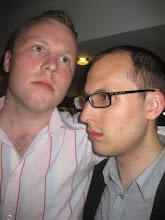BIG love to all the single ladies, put your hands up, here's the next reading group:
Making Medieval Subcultures? Chaucer’s Cook/Chaucer’s Punks
As medievalists, we spend a lot of time talking about medieval ‘culture’. Perhaps, then, it might be interesting to start talking about ‘subculture’. Chaucer’s Cook, one of the most critically underrated figures in the Canterbury Tales, gives us a glimpse of a little urban disorder and an unruly band of revelers:
And gadered hym a meynee of his sort
To hoppe and synge and maken swich disport
In this next session, by critically combining parts of Dick Hebdige’s 1979 book Subculture: The Meaning of Style with Chaucer’s Cook, his ‘real life’ counterpart Roger De Ware, and Martha Carlin’s picture of eating out in medieval London, perhaps we can start to imagine what kind of figures these Apprentices are, and how urban spaces are organized in medieval London.
Is Chaucer’s cook part of a ‘subculture’? Is Hebdige’s book, itself an account of social disorder in twentieth century Britain, useful for imagining this? What kinds of places are Taverns, and streets, and what kinds of rules are attached to them?
Reading Provided:
The portrait of the Cook in the General Prologue to the Canterbury Tales; the Manciple’s Prologue; the Cook’s Prologue and Tale
Roger de Ware, Cook from the Calendar of Plea and Memoranda Rolls of the City of London
Chapters Six and Seven of Dick Hebidge’s Subculture: The Meaning of Style
‘Fast Food and Urban Living Standards in Medieval England’ by Martha Carlin in Food and Eating in Medieval Europe
Thursday, 11 February 2010
Subscribe to:
Post Comments (Atom)

I love the "punks" part -- that seems just right. Some recommended reading: Paul Strohm, _Theory and the Premodern Text_, which has a chapter on the Cook's Tale ("Lad with Revel to Newegate") that actually excavates a culture of masterless men behind Perkyn Revelour. To say it is the best essay on the Cook's Tale isn't really saying anything ...
ReplyDeleteI remember reading that when I was a spotty young undergrad and wrote on chaucer then, it's such a great paper...BUT...I didn't want to set too much reading, and it pleases those tiresome historians who come if we pretend FACTS and SOURCES are important etc. I jest, of course.
ReplyDeleteHis essay in the same book on Troilus' temporal archive is really rad. It's literally the only time I've ever understood derrida. Reading that book when I was an undergrad (and bits of Hochon's Arrow) really did put me where I am today. Which is at home on the sofa with pasta, it seems.
Ben x
Ben x
strange, I know "each of us is several" and I write as a multiplicity, but I don't normally sign twice
ReplyDelete